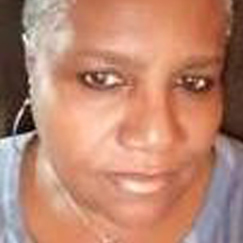Put Your Plans In Writing
You may have heard from friends or loved ones, “I don’t want to be hooked up to any of that stuff,” “Do whatever it takes to keep me alive,” or “When it’s my time, it’s my time; I don’t want to linger.”
We’ve all heard comments like these, or perhaps said or thought some of these things ourselves. Maybe it was a serious conversation, or simply off the cuff.
When it comes to making our emergency and/or end-of-life wishes known, they need to be in writing, and an Advanced Health Care Directive is the vehicle to get that done. Sometimes called Advance Directives, these are legal documents that spell out your health care choices should you become incapacitated and unable to speak for yourself.
There are generally three documents involved:
- Living Will (or Instruction Directive)
- Health Care Power of Attorney
- Health Care Proxy
Although a legal document is not required to communicate your wishes, it is highly advisable that you create one for two reasons: it reduces decisions and disagreements that may arise with loved ones should you or a family member be incapacitated in a way that prohibits communication. Secondly, the laws about end-of-life directives vary state-by-state.
Here are a few examples of the decisions that should be considered when creating an Advanced Health Care Directive:
- Would you like to include Do Not Resuscitate (DNR) instructions?
- Is the use of a ventilator wanted?
- What about artificial nutrition and hydration? (for example feeding tubes)
- Who will be chosen as a health care proxy? (i.e. someone to make healthcare decisions for an incapacitated individual)
- Who can best serve as a durable power of attorney? (i.e. someone who can pay bills or apply for disability on behalf of an incapacitated individual)
- Is organ donation a consideration?
Your or your loved one will benefit from talking to a physician prior to making any of these decisions. Age and current health status will affect the choices made for emergency and end-of-life care.
Start a conversation
Understandably, many people are uncomfortable talking about the possibility of severe injury or death. They may find it frightening or intimidating. You can normalize the topic by gradually bringing up one or two considerations in casual conversations. Unless you or a loved one is facing an immediate health concern, the conversation can start slowly with the less emotional topics. Begin by discussing the legal requirements in your state. Or perhaps, you may inquire, “Did you check ‘organ donation’ when you got your driver’s license renewed?”
Comfort care is another choice that can be outlined in Advanced Health Care Directives. At Avila, we understand the importance of creating the most comfortable, safe, and supportive environments possible for loved ones. We provide personal and companion care support to clients in whatever setting they call home – from their own house, to assisted living, to an inpatient hospice center. We partner locally with Gilchrist for many of our clients. We also provide support to family caregivers, giving them a much-needed break. We work with you to create a customized care plan with a flexible schedule and no long-term commitment.
We’d love to meet you and find out more about your family’s needs. Call us today at 410-826-6100 for a free in-home assessment by one of Avila’s Registered Nurses.
Marie Fisher is Avila’s Caregiver of the Month for March, 2022!
Marie Fisher is Avila’s Caregiver of the Month for March, 2022! Marie is not only invested in her clients’ well-being, but she makes a special point to spend time with her clients’ families as well. She really cares about the people she takes care of. Marie is dependable and trustworthy, and her clients adore her. Congratulations and thank you, Marie!
Read More...The Value of Reading for Senior Citizens
There are many benefits that reading brings to the elderly, some of which can even help them to age in place longer and in a healthier way. Here, the senior care providers at Avila Home Care detail the benefits that reading can bring to senior citizens. Decreases Stress According to research conducted in 2009 by…
Read More...Kehinde Ibosiola is Avila’s Caregiver of the Month for April, 2022!
Kehinde Ibosiola is Avila’s Caregiver of the Month for April! Kehinde is a devoted and selfless caregiver. She is always reliable, consistent, and thorough in caring for her clients. Kehinde pitches in if extra help is needed and has a positive, can do spirit. We applaud Kehinde for her excellent service- Congratulations!
Read More...


